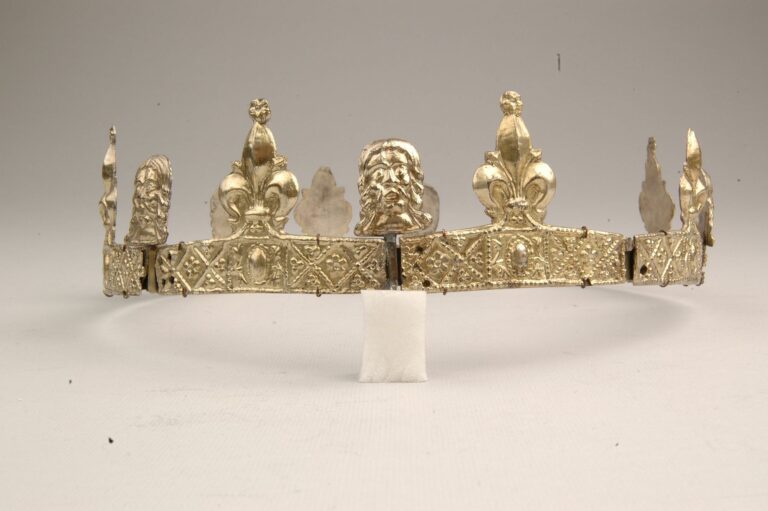Meaning of Richard
Germanic Roots: Rikhardus
The name Richard has its roots in Old High German and has been a popular name in Europe for many centuries. Its meaning can be broken down into two parts: “ric” or “rīk,” which means “power,” and “hard” or “hart,” which means “strong.” Together, the name Richard is often interpreted as “powerful leader” or “strong ruler.”
Richard is derived from the Germanic words “ric” (meaning power) and “hard” (meaning strong), both of which are reflected in modern English words. The name is also related to the Old Norse word “ríkr,” which means “riches” or “power.” This etymological connection highlights the name’s origins as a powerful and authoritative title.
As a given name, Richard has been associated with various figures throughout history. Saint Richard of Chichester, for example, was an English bishop who lived in the 13th century and is known for his wisdom and piety. The most famous bearer of the name, however, is likely King Richard the Lionheart (1157-1199), a powerful medieval monarch from England who led the Third Crusade.
During the Middle Ages, Richard became a popular name among European nobility. It was often bestowed upon sons born into aristocratic families or given to individuals who demonstrated exceptional strength and bravery in battle. This trend contributed to the association of the name with military prowess and leadership.
The name Richard gained significant popularity during the High Middle Ages (roughly from the 10th to the 13th centuries). It was particularly common among royal families, including those of England, France, and Germany. The name’s widespread adoption reflects its favorable connotations as a symbol of authority and strength.
Throughout history, various forms of the name Richard have emerged, often influenced by local linguistic traditions or cultural exchange. In some regions, variations like “Reichert,” “Richart,” or “Ricardo” were used instead of the original name. These adaptations not only reflect the dynamic nature of language but also highlight the versatility and adaptability of the name’s meaning.
Today, Richard remains a well-known and respected name worldwide, associated with qualities like leadership, strength, and authority. Its enduring popularity across cultures and languages is a testament to its timeless appeal as a symbol of power and distinction.

The name Richard is derived from Germanic roots, specifically from the Old High German words “riki” meaning “powerful” or “ruler” and “hart” meaning “brilliant” or “bright”. This etymology suggests that the name originally conveyed a sense of strength and authority.
The name Richard is rich in history and significance, with its roots tracing back to ancient Germanic tribes. As a given name, Richard has been in use for centuries, and its evolution can be attributed to the confluence of various languages and cultures.
One of the earliest recorded bearers of the name was Saint Richard of Chichester, an 11th-century bishop who lived in England. This historical figure is often credited with popularizing the name Richard, which gradually gained prominence as a given name throughout Europe.
The Germanic roots of the name Richard are evident in its etymology. Derived from the Old High German words “riki” and “hart”, the name is believed to signify a combination of power, authority, strength, and brilliance.
Over time, the spelling and pronunciation of the name Richard have undergone significant changes, reflecting the linguistic evolution of various languages and cultures. In English, the name Richard has retained its original connotation of strength and authority, while in other languages such as German and French, the name has been modified to reflect local linguistic traditions.
Today, the name Richard is found across the globe, with variations including Ricardo, Rijkard, and Reihard. Its enduring popularity as a given name speaks to its timeless appeal and versatility.
In many cultures, the name Richard is associated with positive qualities such as courage, loyalty, and wisdom. These attributes are deeply ingrained in the cultural psyche and have contributed significantly to the name’s widespread adoption and acceptance.
Origin and History
Middle Ages: A Royal Name
The name Richard has a rich and storied history, with roots dating back to medieval Europe.
Etymology:
- The name Richard is derived from the Old High German words “ric” meaning “power” or “ruler,” and “hard” meaning “brave” or “strong.”
Origin:
- In Middle English, the name was spelled Rychard, and it originated in medieval England as a name given to royalty and nobility.
- The Normans brought the name Richard to England after the Norman Conquest of 1066, where it became popular among the aristocracy.
History:
- The first recorded bearer of the name Richard in England was Ricsiger, a Saxon noble who fought alongside King Harold at the Battle of Hastings.
However, the most famous bearers of the name Richard were the Plantagenet kings of England, including:
- Richard I (1157-1199), also known as Richard the Lionheart, who was King of England from 1189 until his death in 1199.
- Richard II (1367-1400), who ruled England from 1377 to 1399 and is remembered for his love of learning and the arts.
Other notable individuals with the name Richard include:
- Richard Burbage, a renowned English actor who was one of William Shakespeare’s most celebrated performers.
- Richard Wagner, a German composer and conductor known for his operas including “Der Ring des Nibelungen.”
The name Richard has also been associated with several notable works of literature and art, including:
- “Richard III” by William Shakespeare, which tells the story of the rise and fall of King Richard III.
- “The Pickwick Papers” by Charles Dickens, in which the character Mr. Pickwick has a friend named Richard Martin.
Today, the name Richard remains a popular choice for parents around the world, symbolizing strength, courage, and power.
During the Middle Ages, Richard became a prominent royal name in Europe, particularly in England. Notable examples include Richard I, also known as Richard the Lionheart, King of England from 1189 to 1199, and Richard II, who ruled from 1377 to 139 The name was often associated with nobility and monarchic power.
The origin and history of the name Richard dates back to ancient times, with roots in Germanic languages. In Old High German, the name Rikhard was composed of two elements: riki, meaning “power” or “ruler,” and hard, meaning “bringer of victory.” This combination gave rise to a name that signified strength and leadership.
As the Middle Ages unfolded, the name Richard became a prominent royal name in Europe, particularly in England. Notable examples include Richard I, also known as Richard the Lionheart, King of England from 1189 to 1199, and Richard II, who ruled from 1377 to 1399.
The association of the name Richard with nobility and monarchic power is evident throughout history. In medieval Europe, kings and nobles bearing the name were often associated with bravery, martial prowess, and wise leadership. This reputation was solidified by notable figures such as Richard I, who led the Third Crusade, and Richard II, who played a significant role in the Hundred Years’ War.
Over time, the name Richard has spread beyond European monarchies to become a popular given name across various cultures. Today, the name remains a symbol of power, strength, and leadership, while also carrying a rich history and heritage.
Modern Usage
Variations and Cultural Significance
The modern usage of the name Richard has a rich and diverse history, with various variations and cultural significance across different parts of the English-speaking world.
Originating from Germany in the Middle Ages, the name Richard was popularized by the Norman Conquest of England in 106 The name is derived from the Germanic words “ric” meaning “power” or “ruler,” and “hard” meaning “brave” or “bold.”
In modern times, the name Richard has become a timeless classic, symbolizing strength and courage. It is often associated with qualities such as leadership, intelligence, and charisma.
The variations of the name Richard are numerous and can be seen in different cultures. For example:
- Richart
- Riccardo
- Richer
- Reichard
Culturally, the name Richard is significant in various ways:
- In England, Richard III, who ruled from 1483 to 1485, has become a legendary figure in history and literature.
- Richard Wagner’s operas have had a profound impact on Western classical music.
- The name Richard is also associated with the famous explorers, including Sir Walter Raleigh’s companion, Richard Grenville, who helped to establish English settlements in North America.
In conclusion, the modern usage of the name Richard has evolved over time, reflecting various cultural and historical contexts. Its variations are numerous and its cultural significance is profound.
Today, the name Richard remains popular globally, with various adaptations and interpretations in different cultures. In some countries, such as France (Richard) and Germany (Riccardo), the name is spelled slightly differently but retains its rich history and connotations of strength and authority.
In modern usage, the name Richard has continued to be a timeless classic, cherished by parents around the world for its enduring strength and masculinity.
Its rich history and cultural significance have led to various adaptations and interpretations in different cultures, reflecting the name’s versatility and adaptability.
From France to Germany, and beyond, the name Richard has been spelled slightly differently, yet retains its core essence and connotations of power and authority.
In English-speaking countries, the name Richard remains a popular choice for parents seeking a name that exudes confidence and leadership qualities.
Its popularity is not limited to traditional naming conventions; it’s also been used in various forms of fiction, such as literature and film, where characters named Richard are often portrayed as brave and charismatic heroes.
The name Richard has also been associated with several notable figures throughout history, including kings, queens, and nobles, adding to its regal and aristocratic connotations.
Today, the name Richard continues to inspire parents seeking a timeless and classic name for their children, one that will stand the test of time and evoke strength and authority in those who bear it.
- Best Dun & Bradstreet (DNB) Alternatives for 2025 - April 26, 2025
- Best Seamless.ai Alternatives for 2025 - April 26, 2025
- Best Leadfeeder Alternatives for 2025 - April 25, 2025

